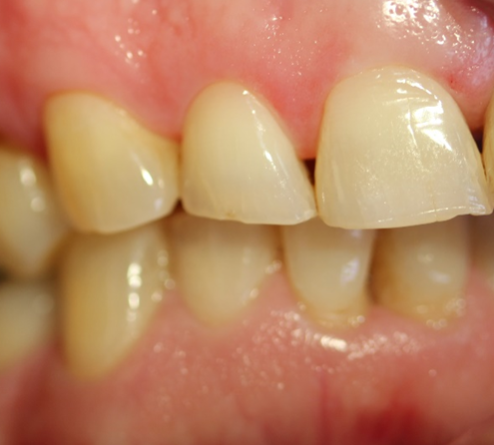Dental decay also known as dental caries is permanent damage to tooth structure. It results in the formation of holes or cavities in the tooth surface which may extend inwards towards the pulp (nerve) of the tooth.
What Causes Tooth Decay?
Tooth decay is caused by micro-organisms(bacteria) which in the presence of refined carbohydrates produces an acid which dissolves tooth structure resulting in the formation of cavities. Dental decay can occur on every surface of a tooth however, the surfaces in between teeth are the most susceptible.
How Will I Know If My Child has Dental Decay?
In the early stages of dental decay, the tooth may appear to have a white, creamy or dark spot. This often precedes the formation of a cavity or hole which you may be able to visualise. Dental decay rarely causes pain until it has advanced inward and is close to the pulp(nerve) of the tooth. People may experience sensitivity to hot and cold temperatures, and sugary foods and drinks. Therefore, it is important to take your child to the dentist regularly from a young age for a dental examination. Regular dental examinations can help prevent dental decay from forming, reverse the process (if in the early stages) or treat it before it becomes painful.
How Can I Prevent Dental Decay in my Child?
Dental decay is preventable! Remember the bacteria that causes tooth decay needs refined carbohydrates (sugar) to cause dental decay. By following these steps, you can reduce your child’s risk of getting dental decay!
- Reduce the frequency of sugar intake: Limiting the amount of sugar your child consumes is important. However, limiting the frequency of sugar intake is critical as each time one consumes sugar your teeth are susceptible to decay. By reducing the number of times your child consumes sugar every day, you are reducing the amount of time when teeth are exposed to the harmful effects of sugar. Therefore, avoid snacking between meals or opt for a tooth friendly snack. It is also important to limit the amount of time you sip on sugary drinks as these are equally as harmful to your teeth as sugary food.
- Good oral hygiene: Ensuring your child is brushing twice a day with a fluoride containing toothpaste will help reduce their risk of dental decay. Up until the age of 7-8 it may be necessary to help your child brush their teeth effectively. Once finished brushing your child should spit out excess toothpaste but should not rinse their mouth. Rinsing too soon after brushing washes away the fluoride and doesn’t give it time to work its magic!
- Regular dental visits: Taking your child to the dentist for regular dental examinations will help promote a healthy dental experience and reduce your child’s risk of dental decay. It is usually advised to see your dentist at least once a year, although your dentist may advise more regular visits depending on your child’s oral health.
Healthy Snacks and Lunch Box Ideas
Here is a list of tooth friendly snacks and lunch box ideas to help your teeth stay strong and help your mouth clear bacteria and acid from your teeth.
- Yogurt and cheeses
- Carrots, celery, and leafy greens
- Apples
- Lean proteins
- Nuts(age and allergy dependent)

